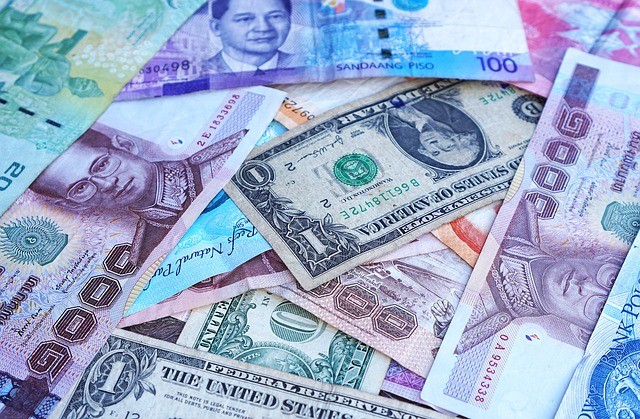Investments
5 Factors That Affects Forex Market

The forex market sees trillions of dollars over millions of transactions taking place between traders, both buyers and sellers from all over the world every day, 24 hours a day.
Given that it is such a globalised platform, macroeconomic factors are playing an ever-increasing role.

A value of a nation’s currency is largely determined by the health of the nation’s economy. This economic health is impacted by a multitude of ever changing factors.
Let us take a look at 5 factors that affect the forex market:
• Capital Markets
Largely due to improved technology and communication, traders and analysts have accurate, instant access to information on the dealings of corporations, institutions and government entities. This makes global capital markets highly transparent indicators of an economy’s health. The stock and bond markets are the most visible markets in the world.
Any sudden or large transaction or sell-off with in a country will be noticed immediately and will indicate changes in investor perceptions, setting off alarm bells.
Alternatively, a number of economies are highly sector driven, some being mainly commodity-based for example. In these cases, major changes in commodity prices will have an immediate and dramatic impact on that economies currency. A sharp increase in commodity prices for such an economy will see their currency immediately improve relative to economies less commodity based. It could even have a negative impact on the non-commodity based currency so the data can work both ways.
The bond markets will also be impacted by the forex market as fixed income securities and currencies rely largely on interest rates.
• International Trade
The balance of trade levels and changes between nations is another crucial factor.
Levels of trade provide great insight into demand of goods from a nation.
Currencies will appreciate when demand for their goods and services increase.
A large deal or order from one nation will cause them to have to convert their currency into that of the nation selling the goods or services. This will cause greater demand for the selling nation’s currency and cause their currency to be stronger.
Trade deficit, where nations buy or import more than they sell or are net buyers/importers, will cause a currency to depreciate. They are using more of their own currency to pay other nations than they receive from other nations for their own goods and services sold. So, the state of the nation’s trade surplus or deficit, or imminent changes based on large deals will have an immediate effect on the value of their currency.
• Political Conditions
The state of a nation’s political environment has an impact on their economic prospects and therefore affects the value of their currency. Often these affects are based on perception in cases of political instability other times the facts are more solid such as fiscal measures put in place by a nation or policy changes.
Again, current technology and communication allows forex traders to constantly follow the political activities all around the world and make decisions based on the perceived impact of the information.
If you intend to trade yourself, ensure you use fca regulated forex brokers.
We have had some very good examples of extreme cases of this recently. Brexit is the first one that comes to mind. The major uncertainty caused by the UKs decision to leave the EU had a profound effect on the British Pound, causing it to reach its lowest levels since 1985. The move also had a ripple effect on other nations within the EU. Election prospects and results also have a dramatic influence on currencies based on perceived future political stability as well as the fiscal and government spending policies of the candidates involved and their performance in the election.
• Economic Releases
Economic reports form the foundation of a forex trader’s information and are a major influence on their trade decisions thus impacting currency value. GDP is the main report forex traders look at. Although it provides only historical information, it gives a very clear indication of trends and the health of a country’s economy.
• Inflation
Another very important indicator used by forex countries is inflation. It can be slightly more difficult to gauge as there are many variables involved but it gives some insight into future trends within an economy.
Those are 5 factors and they are among the main ones but there is a myriad of other aspects to consider, all changing constantly. A forex trader needs rapid, accurate information at all times to understand and predict potential in forex.
-

 Tech11 years ago
Tech11 years agoCreating An e-Commerce Website
-

 Tech11 years ago
Tech11 years agoDesign Template Guidelines For Mobile Apps
-

 Business6 years ago
Business6 years agoWhat Is AdsSupply? A Comprehensive Review
-

 Business10 years ago
Business10 years agoThe Key Types Of Brochure Printing Services
-

 Tech8 years ago
Tech8 years agoWhen To Send Your Bulk Messages?
-

 Tech5 years ago
Tech5 years ago5 Link Building Strategies You Can Apply For Local SEO
-

 Law5 years ago
Law5 years agoHow Can A Divorce Lawyer Help You Get Through Divorce?
-

 Home Improvement6 years ago
Home Improvement6 years agoHоw tо Kеер Antѕ Out оf Yоur Kitсhеn































